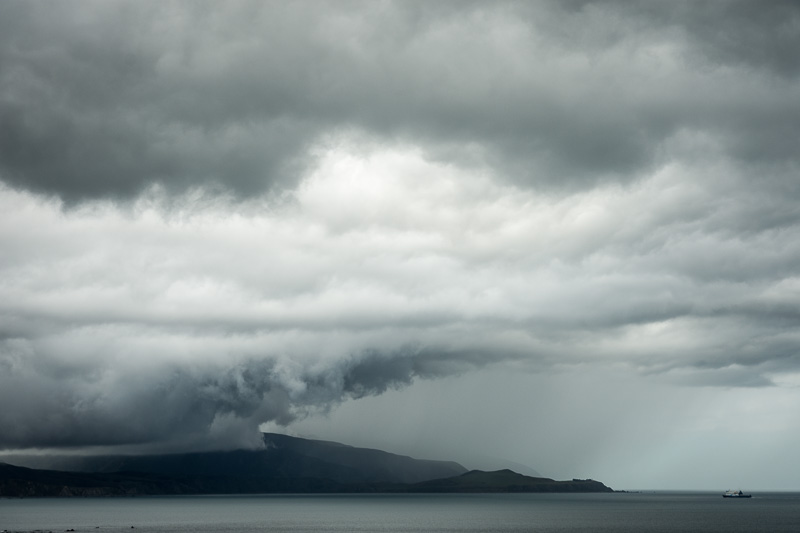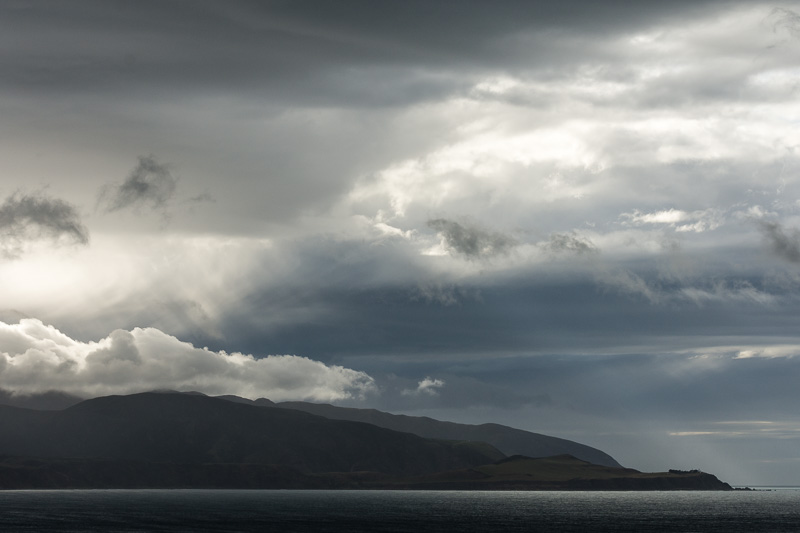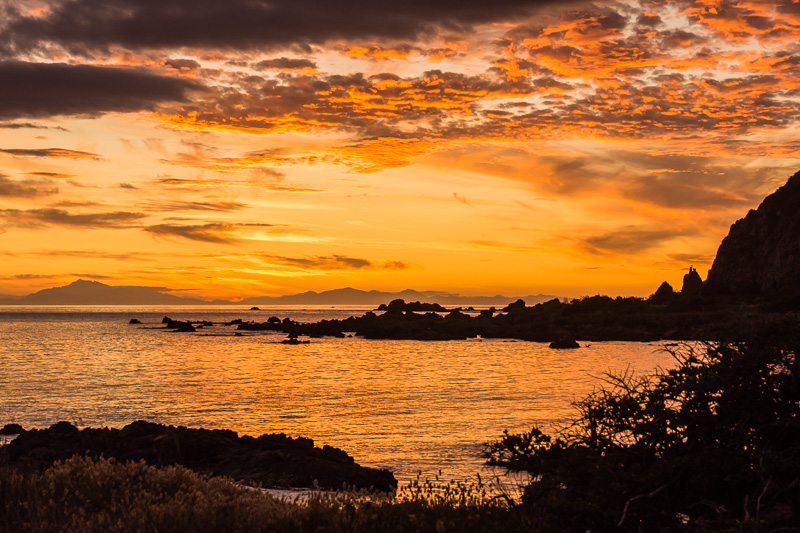Wellington is a very windy place - often described as the windiest city in the world because we "enjoy" the highest average wind speed through the year. Other places get more extreme winds at times, or are windy more of the time but we trump them with an average wind speed of 16 knots (29.6 km/hr or 18.4 miles/hr), and an average of 173 days in the year above 32 knots (59.3 km or 36.8 miles/hr), and 22 days over 40 knots (74.1 km or 46 miles/hr). We have been having a lot of gales in the last few months.
At least the wind means that the clouds are interesting (albeit sometimes disturbing) - like these rainclouds over Baring Head, dwarfing the ferry coming in to Wellington Harbour,

or these ones creating patterns of light before dumping the rain.

Maybe the wind does create interest, and the illusion that we are polluting the air less than we are (it all gets blown away!) but it can also be very damaging, tiring and frustrating. Grrr. So the thought of more extreme weather is not welcome. But that is what we face.
The 2015 Paris Climate Conference is under way. The goal is a legally binding and universal agreement on climate, with the aim of keeping global warming below 2°C. Way back in 1992, at the Rio Earth Summit, the UN Framework on Climate Change was adopted - a framework for action to stabilise atmospheric concentrations of greenhouse gases and to avoid “dangerous anthropogenic interference with the climate system.” We have not done well. New Zealand has done particularly badly. Our overall contribution of greenhouse gases is relatively small because of our small size. Our politicians hide behind this and they are full of excuses - an attitude exemplified by our Prime Minister John Key that many of us find shameful.
The damage that we humans have already done means that we face increasingly extreme weather. The way that our politicians are dealing with this (denial, pretending to be doing something, exhorting others to act while failing to do so) gives me even more concern. Just how bad do things have to get before they walk the walk as well as talk the talk (so often a lot of hot air)?

It is not going to be easy. In trying to work together to care for our planet we humans will need to navigate a lot of differences - it is tough terrain, like the rocky and often stark landscape of Wellington's south coast. But the water, atmosphere, and living communities of planet earth are changing irreversibly. Time is running out. We cannot be complacent. The sun is setting on what we have taken for granted. The analogy of sunset implies there is a sunrise too. I think there is hope - we can act.